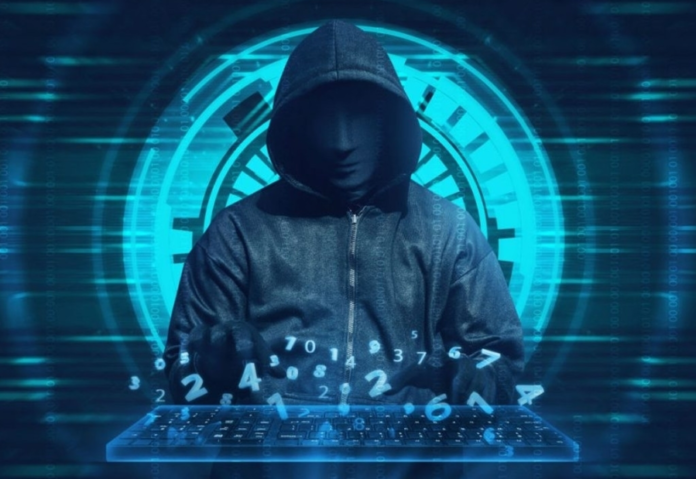The goal of the UN member states’ meeting on Monday is to complete an international convention on combating cybercrime. However, a surprising coalition of large technology corporations and human rights organizations is vehemently opposed to the document.
The goal of the UN member states’ meeting on Monday is to complete an international convention on combating cybercrime. However, a surprising coalition of large technology corporations and human rights organizations is vehemently opposed to the document. The idea for the “United Nations Convention Against Cybercrime” was first presented in a letter to the secretary-general of the international organization by Russian officials in 2017.
Despite objections from the US and Europe, the General Assembly established an intergovernmental committee two years later with the responsibility of drafting such a treaty. After a two-week session, the draft text will now ultimately be put to a vote by member states. However, criticism has only intensified during the first seven rounds of negotiations. The office of the UN High Commissioner for Human Rights states that even though the updated document has “some welcome improvements,” there are still “significant shortcomings, with many provisions failing to meet international human rights standards” that are causing worry.
“These shortcomings are particularly problematic against the backdrop of an already expansive use of existing cybercrime laws in some jurisdictions to unduly restrict freedom of expression, target dissenting voices, and arbitrarily interfere with the privacy and anonymity of communications,” it stated in a report. As per the draft language, the treaty’s objectives are to “prevent and combat cybercrime more efficiently and effectively” and to enhance international collaboration, particularly with respect to money laundering and child pornography.
Others, however, take issue with the text’s assertion of power over an unduly wide range of offenses, as demonstrated by the subtitle, “crimes committed through the use of an information and communications technology system.” According to Tirana Hassan, executive director of Human Rights Watch, governments may therefore be obligated under the text “to facilitate investigations into things like same-sex conduct, criticizing one’s government, investigative reporting, participating in protests, or being a whistleblower.” She explained to reporters that the text goes beyond “even the most expansive possible interpretation of its mandate” and instead “actually resembles a global surveillance treaty that would address all crime,” not just a cybercrime treaty. An intention of “no result”
The debate over the draft has brought together some unlikely allies: computer giant Microsoft and rights organizations are standing together, with Microsoft stating in a written submission that “no outcome is better than a bad outcome.” Leading the group of over 100 tech companies represented at the treaty talks is Nick Ashton-Hart, who leads the Cybersecurity Tech Accord. “There is a need for more cooperation by most states, especially developing states, on cybercrime,” Ashton-Hart told AFP. She went on to say, “This convention does not have to be the vehicle for that cooperation.” He suggested that the UN Convention Against Organized Transnational Crime or the Budapest Convention on Cybercrime of the Council of Europe would be preferable solutions.
Ashton-Hart continued, “Our organization will call on member states not to sign or ratify the treaty unless the current draft is substantially improved.” “Democratic states would expect opposition from the private sector, which is very aligned with the civil society world, were this to come up for ratification at the national level,” Ashton-Hart stated. In the meantime, Russia has stood by its position. “Excessive attention to human rights provisions in the Convention is significantly detrimental to international cooperation and will in fact hinder cooperation between law enforcement agencies of states,” the delegation from Russia stated. It claimed in a statement that Western nations intended to “politicize discussions.”
Instead of the current “United Nations Convention Against Cybercrime,” the Russians prefer a return to the text’s initial 2019 title, which called for an “international convention on countering the use of information and communications technologies for criminal purposes.”
Also read: Achieving Rapid Outcomes with AI-Driven Cloud Analytics
Do Follow: CIO News LinkedIn Account | CIO News Facebook | CIO News Youtube | CIO News Twitter
About us:
CIO News is the premier platform dedicated to delivering the latest news, updates, and insights from the CIO industry. As a trusted source in the technology and IT sector, we provide a comprehensive resource for executives and professionals seeking to stay informed and ahead of the curve. With a focus on cutting-edge developments and trends, CIO News serves as your go-to destination for staying abreast of the rapidly evolving landscape of technology and IT. Founded in June 2020, CIO News has rapidly evolved with ambitious growth plans to expand globally, targeting markets in the Middle East & Africa, ASEAN, USA, and the UK.
CIO News is a proprietary of Mercadeo Multiventures Pvt Ltd.






